Honors College Launches
Lindsey Duarte, a first-year architecture student, cares deeply about her community and was interested in ways of applying her skills to solve real-world challenges. A native of Guatemala, Duarte has seen the pain of people going hungry from lack of food. “I have seen so many extreme cases that it makes me want to help them and give them better opportunities,” she says. This commitment was what drew her to New York Tech’s new Honors College.
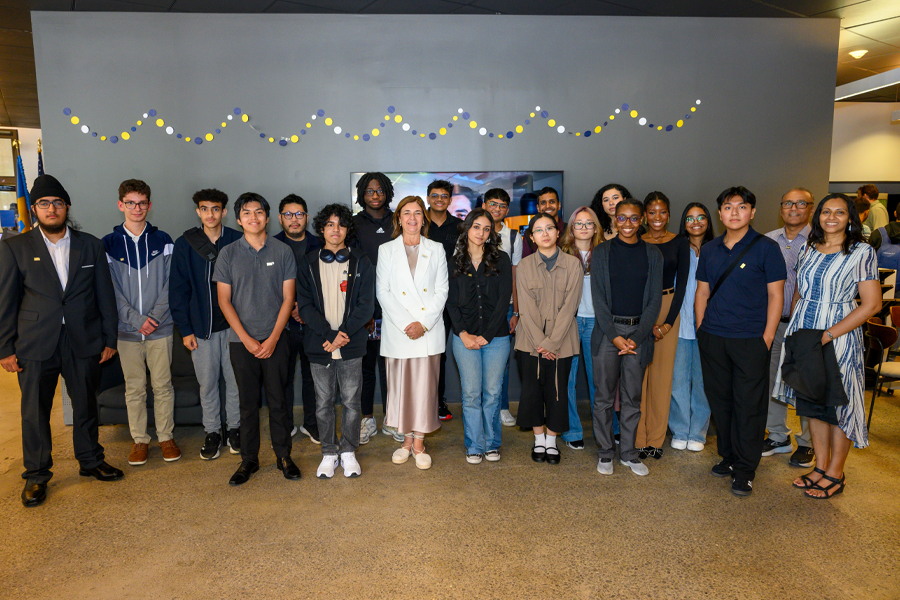
Inaugural chohort of honors students with School of Architecutre and Design Dean Maria Perbellini, M.Arch. (center) and Faculty Fellows Farzana Gandhi, M.Arch., (far right) and Jaime Maritnez, Ph.D., (second from right) on the New York City campus.
Launched this fall, the Honors College draws on the United Nations Sustainable Development Goals as an academic framework for collaborative, project-based learning to tackle complex problems. “A lot of the design process in architecture incorporates sustainability, so involving myself in the Honors College will expand my knowledge on the topic,” Duarte says. “I know that doing this will make me very successful and mindful about our planet Earth.”
The vision of an Honors College at New York Tech took shape just 18 months ago under the leadership of Provost and Executive Vice President Jerry Balentine, D.O. An internal task force was formed to explore how an honors program could elevate student engagement and academic rigor. This fall, that vision became a reality as New York Tech welcomed its inaugural cohort of honors students to the Long Island and New York City campuses.
With the project fast-tracked to launch this academic year, admitted incoming students were invited to apply based on their high school credentials. The application required a piece of creative work; students could submit an essay, a podcast, a video, or even a TikTok. The goal was to enroll about a dozen students at each campus, but the overwhelming response exceeded expectations: 26 students in Long Island and 23 in New York City were accepted.
“We were thrilled at the level of interest,” says Sheri Kelleher, Ed.D., assistant provost and co-director of the Honors College. “Building this program so quickly is quite a success. We’ve engaged so many offices across our campuses and this effort could not have been accomplished without the strategic vision and leadership from Francesca Fiore and Jerry Balentine.”
Eleni Nikitopoulos, D.V.M., Ph.D., co-director of the Honors College and associate professor of biological and chemical sciences, believes the Honors College “is going to build awareness of our institute and will attract students seeking a unique educational experience.”
The Honors College aims to enrich students’ undergraduate experiences, fostering intellectual curiosity and a sense of community. Its creation was deeply influenced by New York Tech’s student body, with an emphasis on engaging students as active problem solvers.
“Our undergraduate population is very diverse,” explains Francine Glazer, Ph.D., associate provost and director of the Center for Teaching and Learning. “Many of our students are first-generation college attendees and first-generation Americans. They have a strong ethos about giving back to their communities. We’ve tried to design our Honors College with an emphasis on experiential education and community engagement.”
Equity and collaboration are key in the program. “We explicitly are not looking to create an elitist track among our student body,” Glazer emphasizes. “Instead, we want to provide something extra for students who would like an additional challenge. We’ve designed the program so that students from any background who’ve distinguished themselves—academically, through community engagement, leadership, or entrepreneurship—can be successful.
“The goal is to help students learn to think deeply and outside of whatever academic discipline they may be coming from,” continues Glazer. “I want students to come out of this experience with the ability to ask thoughtful questions, and to see themselves as people who can go out into the world and make positive change.”
To achieve this, the Honors College has adopted select United Nations Sustainable Development Goals—Good Health and Wellbeing, Clean Water and Sanitation, Affordable and Clean Energy, Reduced Inequalities, Sustainable Cities and Communities, and Climate Action—as a framework for project-based learning. This approach allows students to engage in meaningful collaborations across disciplines, tackling real-world issues with real-world implications.
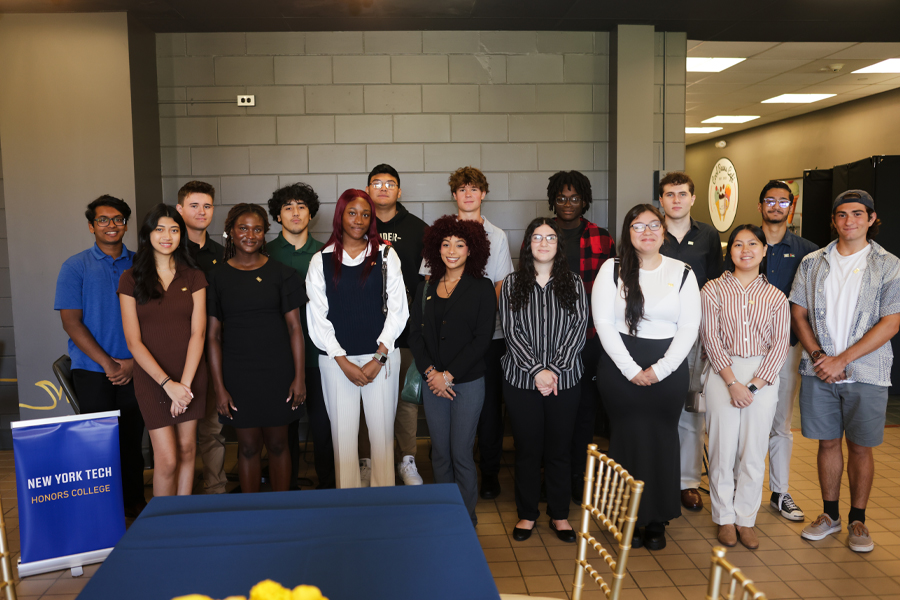
Inaugural cohort of honors students at a luncheon on the Long Island campus.
Faculty across New York Tech were involved in designing the curriculum and were invited to apply to serve as faculty fellows. The Honors College welcomed its first faculty fellows – Farzana Gandhi, M.Arch., and Jaime Martinez, Ph.D., on the New York City campus, and Kelly Lavin, OTD, OTR/L, and Dongsei Kim, M.Des., M.S.AUD, on Long Island.
Gandhi, who has focused her work as an architect on how the built environment impacts factors integral to the selected United Nations Sustainable Goals, is enthusiastic about this interdisciplinary approach. “It’s a remarkable opportunity for students to share perspectives, disciplinary knowledge and expertise across silos in a way that can promote more holistic thinking and perhaps innovative solutions for complex problems,” she says.
Each spring, students will participate in a cornerstone seminar, tackling pressing global questions in small groups under faculty guidance. For instance, one semester might explore the aftermath of Hurricane Katrina from various angles representing the students’ disciplines—climate change, health impacts, equitable shelter, and urban engineering.
This diverse disciplinary representation is what sets the Honors College apart. Students will work collaboratively on real challenges, gaining practical experience that reinforces their classroom learning. “When students engage with the community, they feel the energy of collective purpose,” Gandhi notes. “That’s the magic we want to create.”
In addition to academic pursuits, Honors College students will engage in co-curricular activities, community service, and leadership roles. They’ll also complete a final project in their senior year, showcasing their work in a public setting.
But it’s not just about academics and professional training. “The transition to college can be tough, especially for those who don’t live on campus,” Gandhi points out. “We hope the Honors College fosters a supportive community where students move through their four years as a collective, creating friendships, networks, and alliances they can take into their professional lives.”
Kelleher says that fostering this supportive network was key to the conception and design of the Honors College. “It gives students another opportunity to be part of a community that we’ve developed a lot of resources and programming around,” she says. “This supports our mission to provide an education with real-world learning and innovation.”
Faculty Name
Title
Bio
Office: Borem ipsum dolor sit amet
Email: name@university.edu
Phone: 555.555.5555
More News
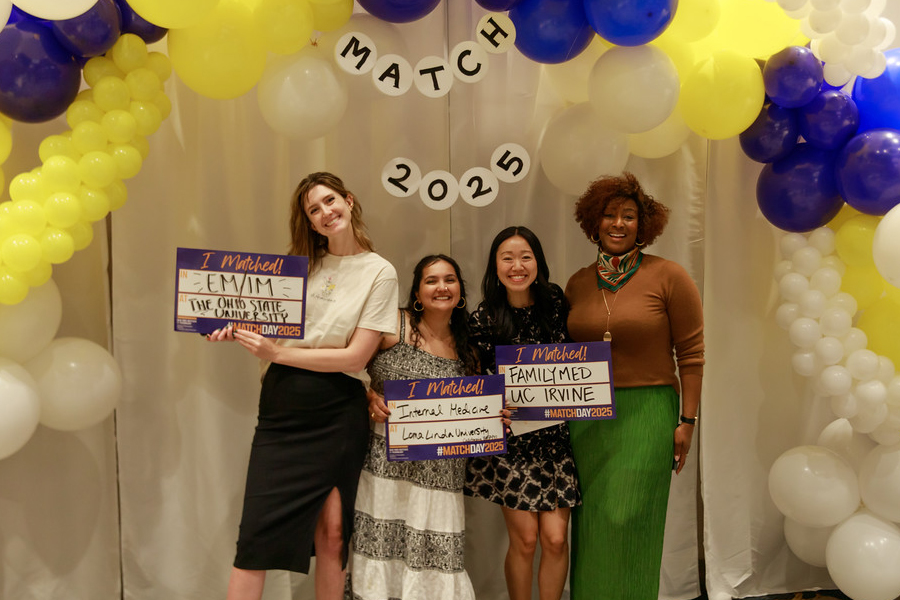
“Match” Madness
On March 21, members of NYITCOM’s Class of 2025 discovered where they will complete their residency training.
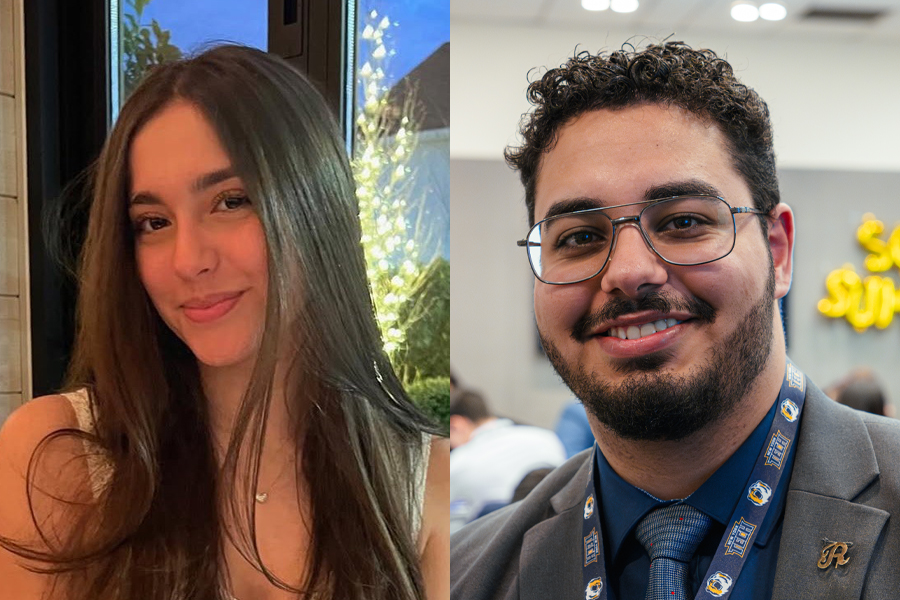
Building a Network of SGAs
Students Marina Moussa and Ridge Tawdrous have taken their Student Government Association (SGA) leadership duties to the next level after successfully organizing New York Tech’s inaugural SGA Summit.
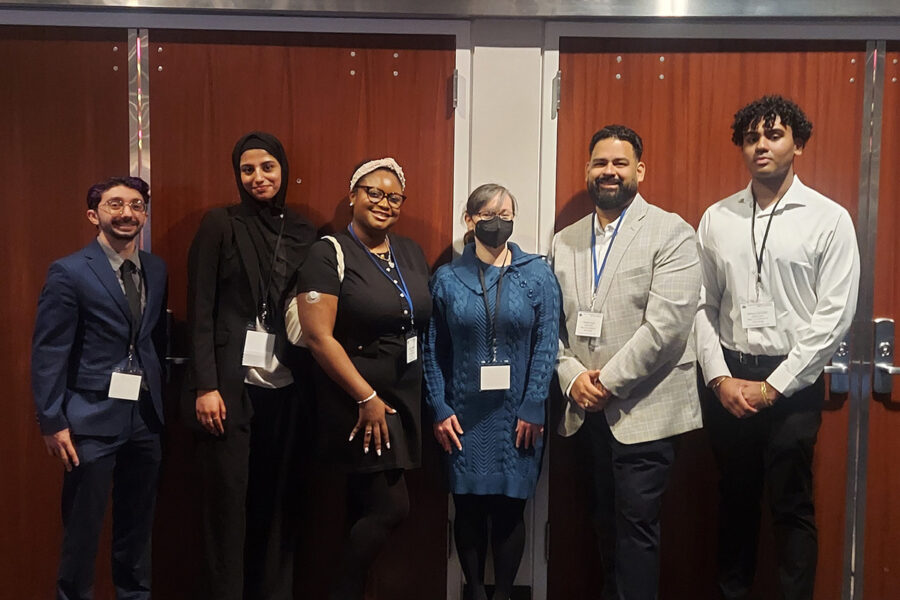
Young Scholars Present at Annual Psychology Conference
College of Arts and Sciences faculty, students, and alumni presented their scholarly research at the 96th Annual Meeting of the Eastern Psychological Association.
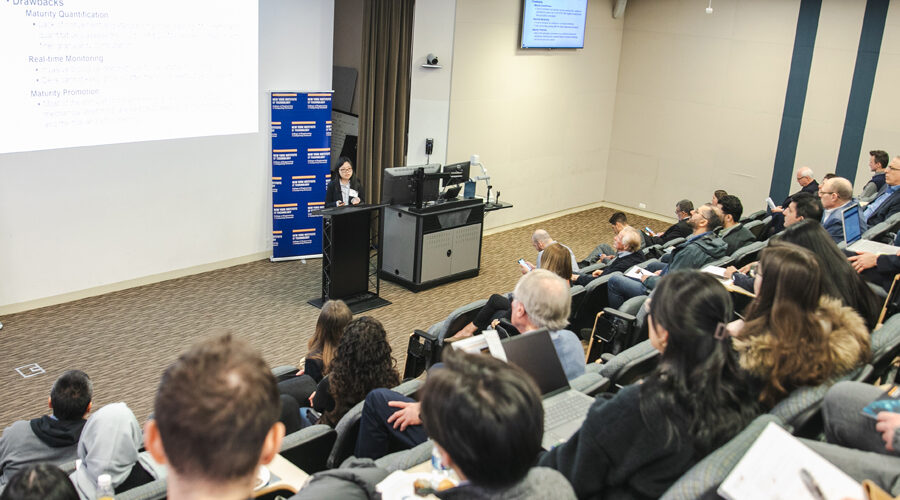
Biotechnology Conference Explores New AI Frontiers in Healthcare
At the Fifth Annual Biotechnology Conference, attendees gathered to exchange innovative research and share ideas centered on the future of medicine and therapeutics through artificial intelligence (AI) and cutting-edge technologies.
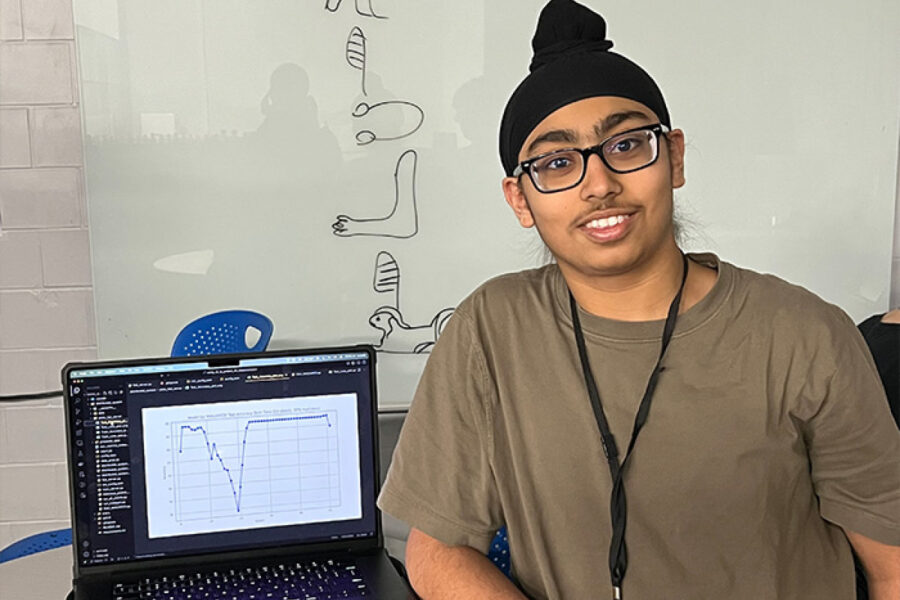
Awarding High School Researchers
New York Tech has completed the eighth year of its Mini-Research Grant Awards program, continuing its commitment to undergraduate research and encouraging high school students to pursue STEM fields.

Tariffs Explained
Business analytics expert Shaya Sheikh, Ph.D., associate professor in the School of Management, explains how newly imposed tariffs could impact consumers, businesses, and supply chains.